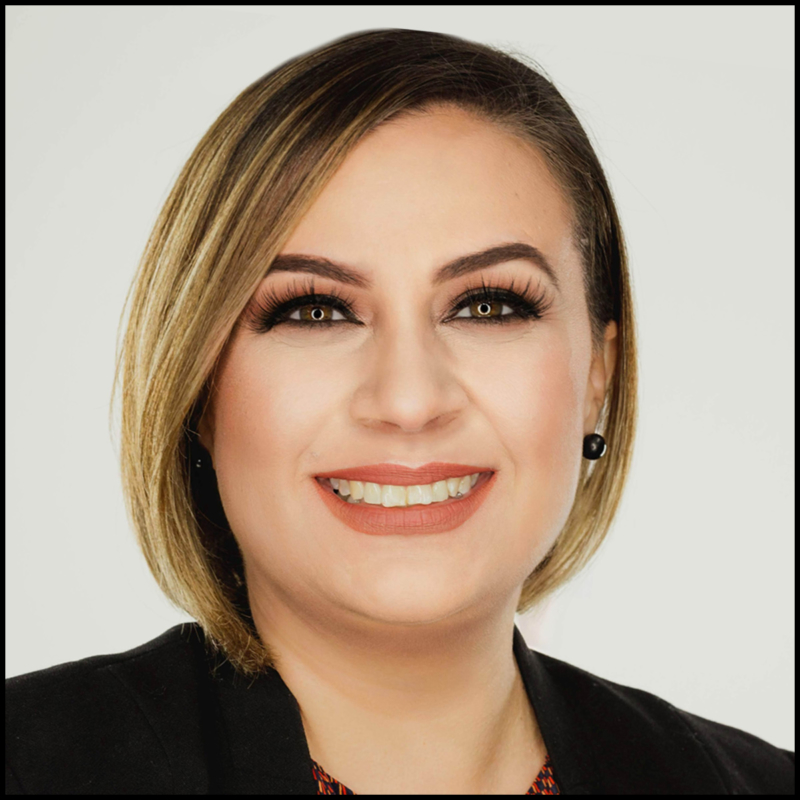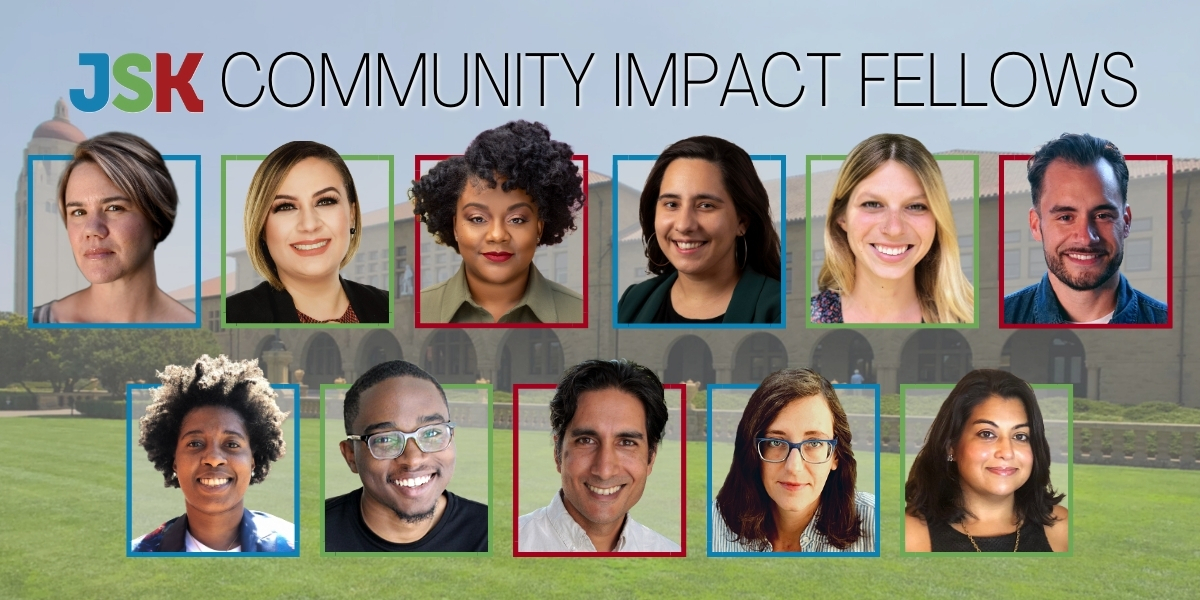The John S. Knight Journalism Fellowships today named 11 journalists, technologists and community leaders as JSK Community Impact Fellows for 2020-2021. The fellows will work remotely on a range of projects to close information gaps affecting people of color—deficiencies that have been exposed and exacerbated by the novel coronavirus pandemic.
“Our new fellows bring deep community experience and empathy to their work,” said JSK Director Dawn Garcia. “Their news and information experiments will help provide essential information to people who are too often overlooked and underserved. This work will change the narrative for thousands of people in our cities and towns.”
The JSK Community Impact Fellows will develop news and information solutions that better engage communities of color in the United States. The communities include Indigenous people, Latino and Asian immigrants and other people of color in California; Latino farmworkers in Idaho; Migrants and Spanish speakers in Arizona; low-wealth Black and brown populations in Detroit, Michigan, Miami, Florida, and Newark, New Jersey; neglected Black and brown residents of Albuquerque, New Mexico, Cleveland, Ohio, and Milwaukee, Wisconsin; and forgotten people of color living in news deserts in the American South.
The fellowship runs from Sept. 14, 2020, to May 14, 2021, though many of the fellows have already begun their work and will continue their projects well after the fellowship ends. The fellows will document their work throughout the year, highlighting key strategies and lessons learned.
JSK announced the new remote model in July, pivoting from its traditional Stanford-based residential fellowship to a virtual arrangement because of the pandemic. Stanford has transitioned to an online model for most classes and programming in the coming academic year. The JSK Community Impact Fellowship allows fellows to remain in their communities while helping solve urgent news and information problems.
Fellows will receive stipends of up to $70,000, additional funds to support their project work, strategic advising, membership in a cohort of innovative leaders, and remote access to the world-class resources of Stanford.
The Class of 2020-2021 joins a thriving JSK community. More than 1,000 people from over 80 countries have participated in journalism fellowships at Stanford since the program first began in 1966.
John S. Knight Community Impact Fellows, JSK Class of 2020-2021

independent journalist
Cleveland, Ohio
Helping citizens in Cleveland’s East Side neighborhoods liberate public information and records that answer important questions affecting their everyday lives through the TransparentCle initiative.

independent journalist / Conecta Arizona
Phoenix, Arizona
Connecting Spanish-speakers along the Arizona-Mexico border and throughout the state with trustworthy information about the novel coronavirus pandemic on Whatsapp, in local newspapers, on radio and on other platforms.

executive director, Outlier Media
Detroit, Michigan
Building a federated business model for publications in Detroit that serve low-wealth Black and brown communities.

investigative reporter, Idaho Statesman
Boise, Idaho
Providing comprehensive multimedia and bilingual coronavirus coverage to Idaho Latinos, especially in isolated farmworking communities.

founder and editor-in-chief, Southerly
Durham, North Carolina
Reaching rural communities of color in Southern news deserts through deep listening; collaborative projects with local news organizations; and creative information-sharing about environmental issues.

engagement manager, News414
Milwaukee, Wisconsin
Identifying, reporting and delivering reliable information to meet the needs of Black and brown Milwaukee residents on the city’s north and south sides.

community engagement reporter, WBGO
Newark, New Jersey
Bringing together local reporters and media makers to respond to the information needs and concerns of people of color during the novel coronavirus pandemic through the Newark News and Story Collaborative.

founder and director, Code for South Florida
Miami, Florida
Implementing participatory budgeting to connect diverse poor and middle-class communities with vital civic information that affects their neighborhoods and quality of life.

co-director, New Mexico Local News Fund
Albuquerque, New Mexico
Assessing community information needs in Albuquerque’s South Valley, International District and Westgate neighborhoods and helping develop solutions to close information gaps caused by systemic racism and neglect.

co-founder and publisher, The Mendocino Voice
Ukiah, California
Training Latino and Indigenous local residents to directly report news of and for the community in Mendocino’s news deserts.

co-creator, Sense LA
Los Angeles, California
Helping immigrant communities and other people of color access municipal meeting information during the coronavirus pandemic and provide public comments so that their voices are heard by officials making policy and budget decisions.
